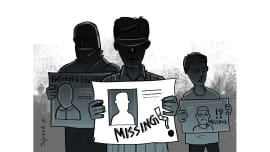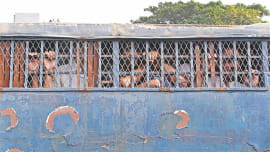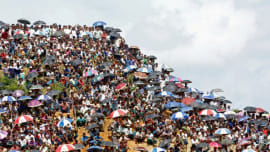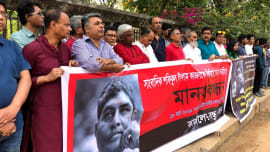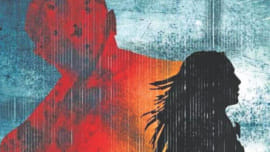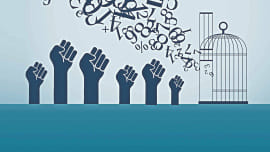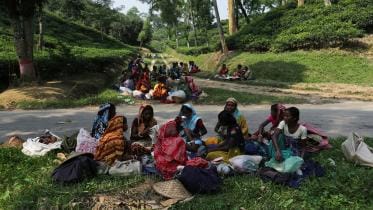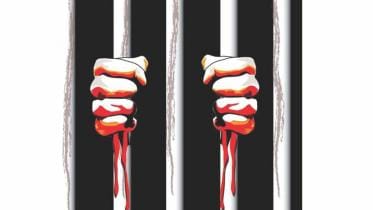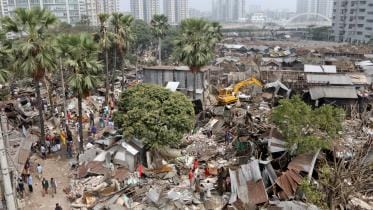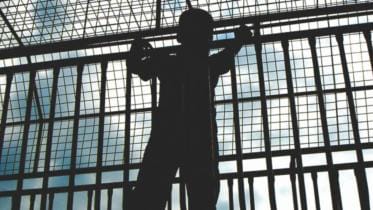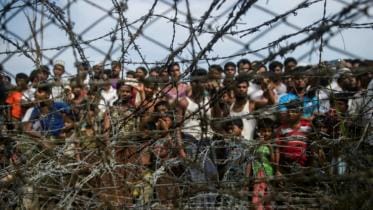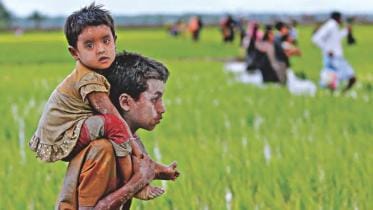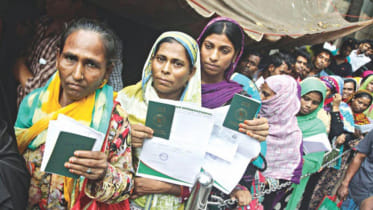Capital punishment for disappearance leading to death
28 August 2025, 18:50 PM
Human rights
Opinion / Security in custody still non-existent
25 August 2024, 11:49 AM
Opinion
HRW report details sorry state of immigration detainees in Malaysia
6 March 2024, 10:35 AM
Human rights
Pandemic and prisons: the powder keg
6 April 2020, 18:00 PM
Human rights
Protect human rights during the pandemic
4 April 2020, 18:00 PM
Human rights
Concern for Kajol during the pandemic
2 April 2020, 18:00 PM
Human rights
Domestic violence during the time of corona
31 March 2020, 18:00 PM
Human rights
Covid-19 and the Rohingya refugee crisis
30 March 2020, 18:00 PM
Human rights
Coronavirus threat: Tea workers’ say no to work
30 March 2020, 18:00 PM
Human rights
Free flow of information in the time of COVID-19
29 March 2020, 18:00 PM
Human rights
Capital punishment for disappearance leading to death
The interim government yesterday approved in principle the draft of the “Enforced Disappearance Prevention and Redress Ordinance-2025”, which proposes the death penalty as the maximum punishment in certain cases of enforced disappearances.
28 August 2025, 18:50 PM
Security in custody still non-existent
Repeated instances of mob beatings of political detainees expose govt's failure to provide their safety
25 August 2024, 11:49 AM
HRW report details sorry state of immigration detainees in Malaysia
A Human Rights Watch (HRW) report has detailed the damning state of immigration detention centres in Malaysia that house thousands of refugees and asylum seekers, listing claims of human rights violations and abuse
6 March 2024, 10:35 AM
Pandemic and prisons: the powder keg
Human-Kind is under attack. People of all races, colours, countries, religions and social classes stand on a common platform to face the massive onslaught of the coronavirus.
6 April 2020, 18:00 PM
Protect human rights during the pandemic
In a situation where the covid-19 virus has overwhelmed some of the world’s best resourced healthcare systems, Bangladesh—like other developing countries—must brace for the worst.
4 April 2020, 18:00 PM
Concern for Kajol during the pandemic
Does anyone know what had happened to Utpal Das? If you cannot remember who Utpal is, no one would blame you.
2 April 2020, 18:00 PM
Domestic violence during the time of corona
The Covid-19 pandemic has opened our eyes to many vulnerabilities. With home quarantine proving to be a successful strategy, we are finally catching up and practicing it. Bangladeshi narratives about home quarantine now discuss how home is the safest place to ensure sanitisation, hygiene and disinfection.
31 March 2020, 18:00 PM
Covid-19 and the Rohingya refugee crisis
All around the world, the numbers are climbing. Each day registers thousands of new cases and lives lost. In Europe, now the epicenter of the pandemic, governments know that the worst is yet to come and are implementing increasingly restrictive measures to enforce social distancing and isolation.
30 March 2020, 18:00 PM
Coronavirus threat: Tea workers’ say no to work
The tea workers of Shamshernagar Tea Garden in Kamalganj upazila, Moulvibazar, took matters into their own hands in defiance of the garden management and stopped work from March 27.
30 March 2020, 18:00 PM
Free flow of information in the time of COVID-19
Today the whole world is struggling to manage the global crisis of COVID-19 and Bangladesh has been listed as one of the 25 high risk countries.
29 March 2020, 18:00 PM
Why citizens must speak out against injustice
The first amendment to the United States Constitution declares that government shall make no laws “abridging the freedom of speech”.
13 March 2020, 18:00 PM
Four (custodial) deaths and an alibi
Failing to nab her husband, Yasmin Begum, a mother of two, was picked up by the Detective Branch of police in Gazipur in the evening of February 18.
27 February 2020, 18:00 PM
What really happened in Bhashantek?
Between 1998 and 2010, the government of Bangladesh facilitated the construction of an affordable housing complex budgeted at Tk 341.65 crores for urban slum dwellers. However, today slum dwellers occupy only a minute fraction of the apartments allocated for them.
15 February 2020, 18:00 PM
Jihadists of Bangladeshi descent
The verdict rejecting the appeal of the so-called ISIS bride, Shamima Begum, has stoked an important debate in the United Kingdom, raising serious concerns and anxiety among migrant families and rights activists.
14 February 2020, 18:00 PM
Protecting the rights of a child offender
Bangladesh has a population of more than 160 million and almost half the population are children. Due to their young age, children who come in conflict with the law may not possess the maturity to realise the gamut of their acts, and they should not be exposed to the company of adult offenders since that is likely to have a negative impact on them.
4 February 2020, 18:00 PM
What comes after the ICJ ruling?
All eyes were turned to The Hague on Thursday when the International Court of Justice (ICJ) came back with its momentous decision on emergency provisional measures for the protection of the persecuted Rohingya population of Myanmar’s northern Rakhine State.
24 January 2020, 18:00 PM
Killings at the Bangladesh-India border
January 7 marked the ninth anniversary of the gruesome killing of Felani Khatun, 15 years old, at Anantapur border of Phulbari Upzila
16 January 2020, 18:00 PM
Why is most of Asia looking away from Myanmar?
The latest resolution passed by the United Nations General Assembly condemning rights abuses against Rohingya Muslims and other minority groups in Myanmar was the third such resolution on the subject.
4 January 2020, 18:00 PM
Will the National Human Rights Commission fulfil our expectations?
At a recent dialogue between civil society members and the National Human Rights Commission (NHRC), the newly appointed
2 January 2020, 18:00 PM
Addressing the plight of women migrant workers
In recent time numerous stories have been reported in the media about the unspeakable sufferings and exploitations of Bangladeshi women migrant workers (WMWs) in some Gulf Cooperation Council (GCC) states.
27 December 2019, 18:00 PM



